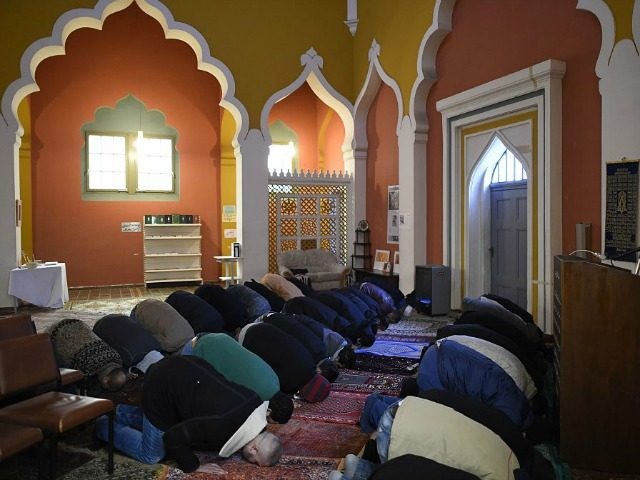A prominent German architect has said that in order to better integrate migrants, churches should be demolished and very “visible” mosques be built in their place.
Interviewed in Die Tageszeitung, Joaquim Reinig said he believes Hamburg needs to build more mosques. He said mosques “actively integrate” migrants who the authorities can’t reach.
The newspaper asked the architect if he really thought mosques would help migrants integrate rather than just “perpetuate their ancestral way of life”. He replied that in order to properly integrate people in a foreign country, migrants must “have no fear”. This should be done, Mr. Reinig thinks, by building very “visible” mosques.
“The visible minaret in modern architecture is a message to the migrants: Do not fear having to lose your identity in this society,” he said.
Mr. Reinig said mosques were a sign of integration as they show Muslims they can build a life in Germany while retaining their faith. He noted that Turkish guest workers, who arrived generations ago, thought they would return to Turkey one day.
Once they had children and grandchildren in Germany, he argued, the “relatively secular” workers from Anatolia “remembered” their religion.
“The desire to become a German citizen and the activation of their faith ran parallel,” he told the co-operative owned, left-wing newspaper. This comes after a report this month revealed that half of Turks in Germany regard Islamic law supreme over German laws and that young people are the most devout.
In the interview, Mr. Reinig noted that a 2013 report he had co-written stated an “urgent need” for mosques in the region. He said that, responding to this, Green politician Stefanie Berg called for “a mosque in every neighbourhood”.
Mr. Reinig said he and the Hamburg Senate observed 42 mosques in the region. They looked at the languages in which they preach, documented the mosques’ sizes and learned about the “community work” they engage in.
He said the Hamburg Senate worked closely with the Turkish-Islamic Union for Religious Affairs (DITIB), which German ministers have criticised for being controlled by the Turkish government.
Mr. Reinig said there is plenty of space for mosques in Hamburg as many churches in the region “have to be abandoned”. He said this means there are “theoretically 50 locations” for mosques. He noted that around three per cent of Christians in Germany, 23,000 people, attend church in the region compared to the 17,000 Muslims who currently attend mosques in Hamburg.
Asked whether it might cause a backlash to turn churches into mosques, the architect said he thought churches should generally be demolished rather than converted. He said: “Jews, Christians and Muslims, as members of Abrahamic religions, are theologically brothers and sisters.
“They have many similarities so should have no fear.”
The newspaper asked Mr. Reinig why, as a progressive, he preferred “contemporary mosques” to secular places “free from” religion. The architect responded that secular places are “undisputed classics”, so he has spent recent years lobbying for an immigration museum in Hamburg.
“In the Veddel [district] there is already an emigration museum, but the story of immigrants, the ‘guest workers’ must be documented now, while they are still alive,” Mr. Reinig said.
The architect said he felt Islamic terror events hit Muslim communities hard but that in the mosques they are “very strong under pressure”.
“There are 42 Muslim communities in Hamburg,” Mr. Reinig told the paper, “and they lead a normal life — they are far from terrorists.”
Earlier this month, four Syrians were arrested for plotting France-style suicide bomb attacks and mass shootings in Germany. The country’s justice ministry revealed they are currently investigating more than 180 terror suspects in Germany with links to Islamic State.

COMMENTS
Please let us know if you're having issues with commenting.